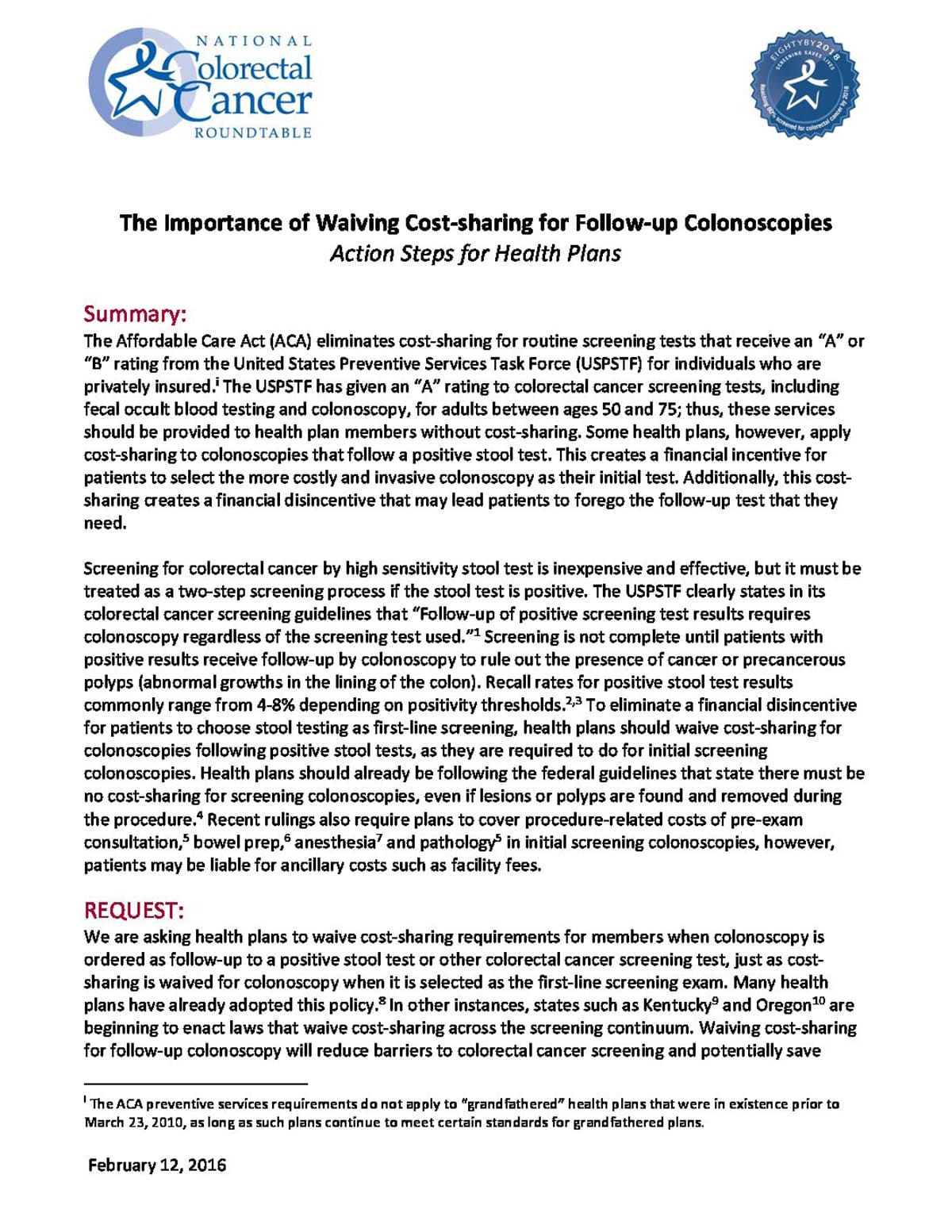The Importance of Waiving Cost-sharing for Follow-up Colonoscopies: Action Steps for Health Plans

The Importance of Waiving Cost-sharing for Follow-up Colonoscopies: Action Steps for Health Plans
The Affordable Care Act (ACA) eliminates cost-sharing for United States Preventive Services Task Force (USPSTF) – recommended preventative services for individuals who are privately insured, including screening for colorectal cancer by high sensitivity stool test or colonoscopy for adults ages 50 and 75.* Some health plans, however, apply cost-sharing to colonoscopies that follow a positive stool test. This creates a financial incentive for patients to select the more costly and invasive colonoscopy as their initial test. Additionally, this cost-sharing creates a financial disincentive that may lead patients to forego the follow-up test that they need.
This Issue Brief gives an overview of this issue and makes a request to health plans to waive cost-sharing for members when colonoscopy is ordered as follow-up to a positive stool test or other colorectal cancer screening test, just as cost-sharing is waived for colonoscopy when it is selected as the first-line screening exam.
Learn more in Colorectal Cancer Screening Best Practices Handbook for Health Plans, a compilation of best practices, case studies, templates and tools.
*The ACA preventive services requirements do not apply to “grandfathered” health plans that were in existence prior to March 23, 2010, as long as such plans continue to meet certain standards for grandfathered plans.
Explore More

Increasing Colorectal Cancer Screening in Rural Communities: A Practical Guide
This guidebook is designed to support key community partners in understanding and overcoming the unique challenges and common barriers to CRC screening faced in rural communities.

American Cancer Society: A Colorectal Cancer Screening Guide for Cancer Coalitions
This new guide from the American Cancer Society will help build your coalition's capacity to address colorectal cancer screening.

Clinician’s Reference: Stool-Based Tests for Colorectal Cancer Screening
This revised resource is designed to introduce (or reintroduce) clinicians to the value of stool-based testing for colorectal cancer.